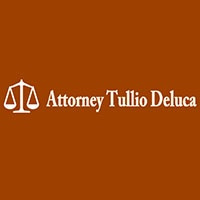Olyphant Bankruptcy & Debt Lawyer, Pennsylvania
Sponsored Law Firm
-
 x
x

Click For More Info:
-
Newman Williams, P.C.
712 Monroe St P.O. Box 511 Stroudsburg, PA 18360» view mapBankruptcy & Debt A Legacy Of Solving Clients' Problems
We are proud to uphold a decades-long tradition of serving clients with courtesy, honesty and integrity. We have been here for you, and we will continue assistance into the future.
570-421-9090
Tullio DeLuca
✓ VERIFIEDBankruptcy & Debt, Accident & Injury, Divorce & Family Law, Employment, Estate
Tullio DeLuca was admitted to bar in 1990 in Pennsylvania, US District Court, Middle, Eastern and Western Districts of Pennsylvania. Attorney DeLuca r... (more)
Molly Dempsey Clark
Election & Political, Family Law, Business Organization, Collection
Status: In Good Standing
Joseph M. Campolieto
Government, Divorce & Family Law, Business, Bankruptcy & Debt
Status: In Good Standing Licensed: 31 Years
Jason Bruce Reeves
Deportation, Social Security, Insurance, Credit & Debt
Status: In Good Standing Licensed: 8 Years
Joan Lednovich
Deportation, Child Support, Insurance, Credit & Debt
Status: In Good Standing Licensed: 34 Years
Carlo Sabatini
Bankruptcy, Collection, Credit & Debt, Employment
Status: In Good Standing Licensed: 25 Years
Anne Marie Howells
Divorce & Family Law, Criminal, Bankruptcy, Bankruptcy & Debt
Status: In Good Standing Licensed: 25 Years
Joseph Samuel Colbassani
Divorce & Family Law, Criminal, Collection
Status: In Good Standing Licensed: 42 Years
 Vincent Rubino Stroudsburg, PA
Vincent Rubino Stroudsburg, PA Practice AreasExpertise
Practice AreasExpertise

